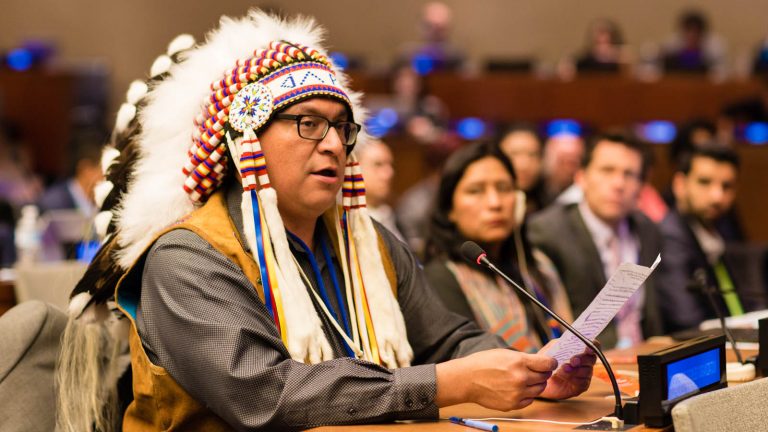
The 21st Session of the Permanent Forum on Indigenous Issues
Share
From 25 April to 6 May 2022, the 21st Session of the Permanent Forum on Indigenous Issues (2022) will take place. The theme is “Indigenous peoples, business, autonomy and the human rights principles of due diligence including free, prior and informed consent”. The meetings will take place at the UN headquarters in New York and will be live streamed at webtv.un.org.

Indigenous peoples have a long history of marginalization and human rights violations. Some examples of the threats that indigenous peoples face are poverty, discrimination and being removed from their native lands and assets.
To address these issues the United Nations (UN), the most important international law organization in the world, established the United Nations Permanent Forum on Indigenous Issues (UNPFII) in 2000. The Forum is a high-level advisory body to the United Nations and includes many different indigenous people from all over the world. There are 16 core members, and in addition other indigenous peoples and (indigenous) human rights organizations can sign up to attend the meetings. Together they discuss indigenous issues related to economic and social development, culture, the environment, education, health and human rights. Additionally, each meeting focusses on a specific issue. When the meetings have finished, the Forum writes a report and subsequently gives advise to the United Nations on these issues.
For example, the 3rd session in 2004 was focussed on Indigenous Women. It is striking that indigenous women worldwide are facing similar challenges, despite their great cultural and regional diversity. These challenges include social dislocation, poverty, underdevelopment, and marginalization due to their cultural difference and minority status. Unified in their struggle for cultural survival, indigenous women have now been placed on the agenda of the international community as one of the “emerging key issues”, and they are responding by organizing themselves on the international, regional, national and local levels.

Our president Ampera and our vice-president Oralia acknowledge the hardships that indigenous women face. They themselves and their families have faced poverty, are uneducated and face discrimination, especially against their clothes and languages. However, they say that nowadays the discrimination in Guatemala is starting to decrease. People have more respect for indigenous women now, even though discrimination still persists.
Also, in Guatemala more laws are put in place to protect indigenous peoples and encourage their participation in society. Laws and policies have definitely helped to decrease the discrimination against indigenous peoples. This is one of the reasons that Trama really applauds the Forum on Indigenous Issues. It is very important to take the rights and needs of indigenous peoples in consideration in laws and policies, because it can make a big difference for these people.
